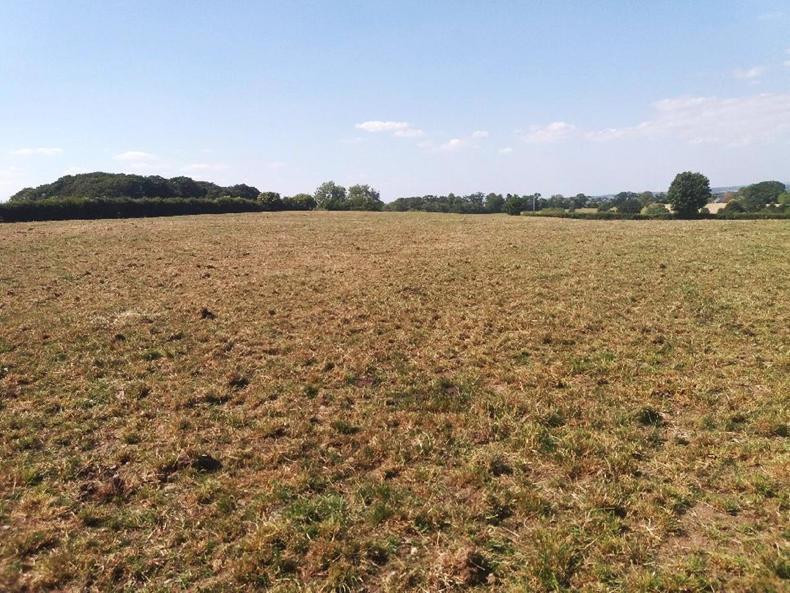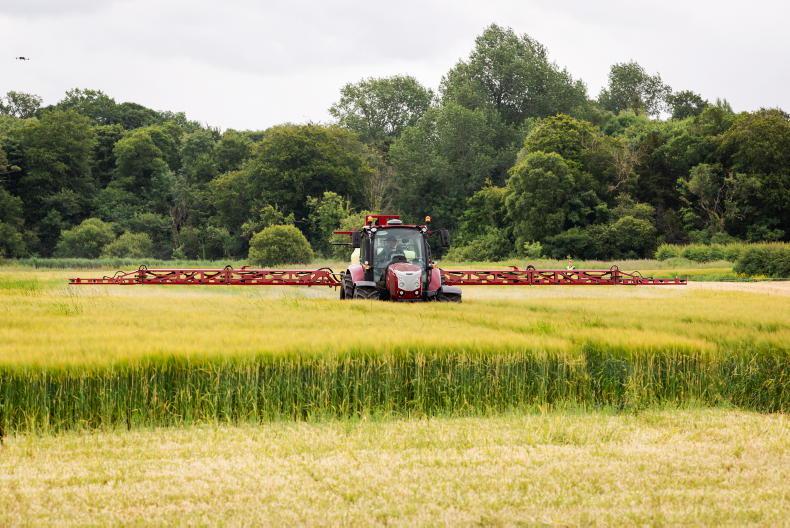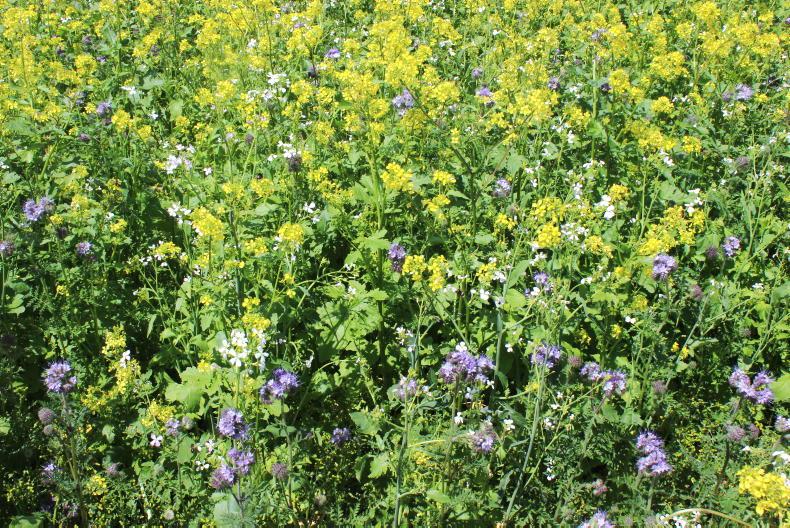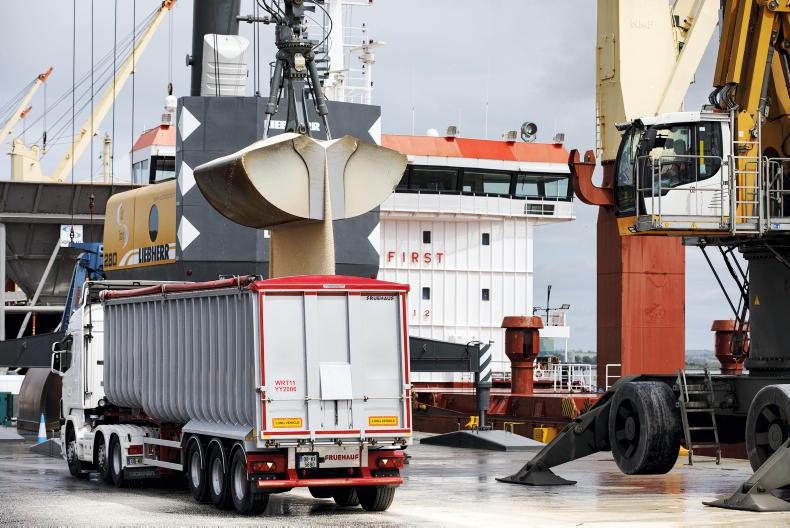A wise man once asked me: “What is the difference between a good farmer and a poor one?”
When I professed I didn’t know, he told me.
“A week,” he said.
All farmers do basically the same things, whether it’s heat detection in cows, closing paddocks, spraying corn, condition scoring and flushing ewes, but the effectiveness of what we do is hugely affected by timeliness. That’s what separates the successful from the also-rans.
The next seven days may well define Michael Creed’s tenure as Minister of Agriculture. This is not the first genuine crisis he has faced. On other occasions, action has been taken, but far too slowly. The response this time must be fulsome and speedy.
We are really in a crisis
We are really in a crisis. I spent yesterday travelling around Wexford with IFA president Joe Healy, and what we saw was farmers coping for the minute, but eating into winter forage stocks by the day.
Early spring barley harvest reports include stories of one tonne grain crops with less than three round bales of straw to the acre. The harvest will improve, but there won’t be enough straw to satisfy demand.
Listen to local farmer MJ Callan in our podcast below:
Listen to "Wexford farmer on drought" on Spreaker.
Farmers are trying to deal with the issues directly facing them without staring too far into the future, but it’s obvious that we require snookers to get out of this predicament without significant damage. Firstly, there needs to be consistent rain – twice a week would be about right – to ensure growth continues. And we can’t afford too much rain – that pattern needs to continue until mid-November to shorten the winter at this end.
The final hope is that spring comes in March and not late April. The mood is one of determination, but there is the sense that many are struggling to keep panic at bay.
We need the minister to set the tone, to be assertive and purposeful.
Emergency procedure
So what can the minister do? Only so much, but every little helps. His statement on Thursday was long on rhetoric, but woefully short on specifics. It’s harder to recall the years that we didn’t get a derogation allowing a 70% BPS advance payment than those where we did, it’s barely news. That might seem harsh, but farmers will have no forage to buy with those monies unless we plant fodder crops.
What farmers are anxious to hear about is concessions in relation to GLAS, for Low Input Permanent Pastures and catch crops in particular. The only confirmed change related to permission to take a second crop from traditional hay meadows. Confirmation that flexibilities exist in the other categories and that there will be “further announcements in due course" is not of much use here. This is not a scheduled service, it is an emergency procedure.
Every day of delay is costing thousands of tonnes of fodder
Every day of delay is costing thousands of tonnes of fodder, as farmers wait for a green light to take action. I am one of these farmers. My GLAS plan requires that I sow over 80ac of catch crop following the harvest. Many of the approved crops are brassicas and – as we have cabbage and potatoes in our rotation – can’t be planted. The crops we can plant are not useful for grazing or baling.
We need to be allowed sow and then cut and bale Italian Ryegrass or westerworlds or Tyfon or Redstart. So I’m waiting, and I’m getting more anxious. My winter barley ground is in perfect condition for planting right now, and has been for a week. That would change with a few dry days. The Met Éireann forecast, which has proven remarkably accurate all year, says we won’t have any rain for the next week. An announcement in 10 days time might see us able to plant, but that doesn’t mean the crop will be able to grow into anything meaningful.

Drought 2018
Does the minister understand this? He has been told. The IFA met him this week and conveyed the urgency of the situation, the Irish Grain Growers called for a derogation over two weeks ago.
The minister should understand from past experience that he has not been well served politically by the slow reaction of his Department to fast-moving problems. The fodder shortage in the spring is a case in point, and the 2016 tillage crisis fund turned into a bit of a fiasco.
In contrast, the first low-interest loan scheme was an unqualified success. This was an initiative driven by the minister and promptly delivered by the department that saw €150m flow into farming. This makes it all the more bewildering that we are still waiting for the second fund, nine and a half months after it was unveiled on budget day.
Quick loans roll-out
IFA president Joe Healy has now called for any tweaking of the model to be abandoned, and a quick roll-out of the first scheme take place at this time of greatest need. We are only two months from the 2019 budget, so we could conceivably have a third scheme in place for the first half of next year.
It would be wrong to think that there is a witch-hunt against the minister, he is personable and popular with farmers, and speaks their language. This is about his ability to drive his department to effective crisis management.
Much like Michael Ryan, the likeable Tipperary manager who resigned yesterday, he will be judged by the performance of his team on the field.
Read more
Drought relief: what can Minister Creed do?
Department backtracks on GLAS fallow land derogation
A wise man once asked me: “What is the difference between a good farmer and a poor one?”
When I professed I didn’t know, he told me.
“A week,” he said.
All farmers do basically the same things, whether it’s heat detection in cows, closing paddocks, spraying corn, condition scoring and flushing ewes, but the effectiveness of what we do is hugely affected by timeliness. That’s what separates the successful from the also-rans.
The next seven days may well define Michael Creed’s tenure as Minister of Agriculture. This is not the first genuine crisis he has faced. On other occasions, action has been taken, but far too slowly. The response this time must be fulsome and speedy.
We are really in a crisis
We are really in a crisis. I spent yesterday travelling around Wexford with IFA president Joe Healy, and what we saw was farmers coping for the minute, but eating into winter forage stocks by the day.
Early spring barley harvest reports include stories of one tonne grain crops with less than three round bales of straw to the acre. The harvest will improve, but there won’t be enough straw to satisfy demand.
Listen to local farmer MJ Callan in our podcast below:
Listen to "Wexford farmer on drought" on Spreaker.
Farmers are trying to deal with the issues directly facing them without staring too far into the future, but it’s obvious that we require snookers to get out of this predicament without significant damage. Firstly, there needs to be consistent rain – twice a week would be about right – to ensure growth continues. And we can’t afford too much rain – that pattern needs to continue until mid-November to shorten the winter at this end.
The final hope is that spring comes in March and not late April. The mood is one of determination, but there is the sense that many are struggling to keep panic at bay.
We need the minister to set the tone, to be assertive and purposeful.
Emergency procedure
So what can the minister do? Only so much, but every little helps. His statement on Thursday was long on rhetoric, but woefully short on specifics. It’s harder to recall the years that we didn’t get a derogation allowing a 70% BPS advance payment than those where we did, it’s barely news. That might seem harsh, but farmers will have no forage to buy with those monies unless we plant fodder crops.
What farmers are anxious to hear about is concessions in relation to GLAS, for Low Input Permanent Pastures and catch crops in particular. The only confirmed change related to permission to take a second crop from traditional hay meadows. Confirmation that flexibilities exist in the other categories and that there will be “further announcements in due course" is not of much use here. This is not a scheduled service, it is an emergency procedure.
Every day of delay is costing thousands of tonnes of fodder
Every day of delay is costing thousands of tonnes of fodder, as farmers wait for a green light to take action. I am one of these farmers. My GLAS plan requires that I sow over 80ac of catch crop following the harvest. Many of the approved crops are brassicas and – as we have cabbage and potatoes in our rotation – can’t be planted. The crops we can plant are not useful for grazing or baling.
We need to be allowed sow and then cut and bale Italian Ryegrass or westerworlds or Tyfon or Redstart. So I’m waiting, and I’m getting more anxious. My winter barley ground is in perfect condition for planting right now, and has been for a week. That would change with a few dry days. The Met Éireann forecast, which has proven remarkably accurate all year, says we won’t have any rain for the next week. An announcement in 10 days time might see us able to plant, but that doesn’t mean the crop will be able to grow into anything meaningful.

Drought 2018
Does the minister understand this? He has been told. The IFA met him this week and conveyed the urgency of the situation, the Irish Grain Growers called for a derogation over two weeks ago.
The minister should understand from past experience that he has not been well served politically by the slow reaction of his Department to fast-moving problems. The fodder shortage in the spring is a case in point, and the 2016 tillage crisis fund turned into a bit of a fiasco.
In contrast, the first low-interest loan scheme was an unqualified success. This was an initiative driven by the minister and promptly delivered by the department that saw €150m flow into farming. This makes it all the more bewildering that we are still waiting for the second fund, nine and a half months after it was unveiled on budget day.
Quick loans roll-out
IFA president Joe Healy has now called for any tweaking of the model to be abandoned, and a quick roll-out of the first scheme take place at this time of greatest need. We are only two months from the 2019 budget, so we could conceivably have a third scheme in place for the first half of next year.
It would be wrong to think that there is a witch-hunt against the minister, he is personable and popular with farmers, and speaks their language. This is about his ability to drive his department to effective crisis management.
Much like Michael Ryan, the likeable Tipperary manager who resigned yesterday, he will be judged by the performance of his team on the field.
Read more
Drought relief: what can Minister Creed do?
Department backtracks on GLAS fallow land derogation












SHARING OPTIONS